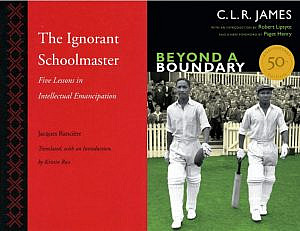… or at least the parts of it, we have read. This catchphrase is what starts off every episode of Game Studies Study Buddies (GSSB), a podcast that – as the name might suggest – deals with Games and more importantly their study. While this blog post might not be what you would expect a game-related media review to be like, the podcast is worth knowing if you are interested in Games.
I first got introduced to it when I came to Tampere to study Game Studies, but I didn’t start listening to it regularly until maybe six months ago when I got reintroduced to it by the same friend that had suggested it to me in the first place. For an assignment, I listened to the specific episodes that might be relevant to my presentation and I found that it was extremely helpful in explaining the source material. Now might be a good time to explain the podcast in more detail, so here we go.
Cameron Kunzelman and Michael Lutz are both academic scholars, the former with a background in Media Studies with a special interest in Science Fiction and the latter coming from early modern English literature with a focus on Shakespeare. They are the hosts of the podcast and as they put it “we’re two friends who make and write about games, think way too much, and read a lot”. Almost every episode is focused on a book, most of them academic publications, with a few exceptions that center articles, films about games or game cultures directly. Cameron and Michael read classics from the field, modern publications and sometimes they read books that have nothing to do with games at a first glance. One of the wildest episodes that I recently listened to is about Ranciere’s The Ignorant Schoolmaster, a book from 1987 about a French teacher from the 18th century. Cameron and Michael discuss the book and its view on education and the way we learn things. And while I thought that it is a bit of an outlier, they extend their discussion to the way games teach us how to play them, which was very insightful.
Each episode is a long (I mean two hours on average) form discussion about the book in question, with explanations and contextualizations that are helpful for students, game designers, and scholars alike. You can just listen to the episodes that seem interesting to you or – if you’re weird like me – you listen to them from episode one to the newest one. This way of engaging with the podcast will allow you to follow overarching arguments, thought lines, and how the hosts develop their opinions over time. To me, they have been extremely informative in learning about game history, game studies, game cultures, and other related areas. The podcast has been influential to my understanding of games. I have used GSSB as a source for assignments and even to think with for my Master’s Thesis.
The podcast discusses critically a big range of topics, some are front and center of Game Studies, like the question of agency, flow, and the medium specificity of games. Other episodes focus on specific games or eras of gaming history, like The Last of Us, Pac-Man or Kong, and they sprinkle in their knowledge about specific games whenever it is relevant. And then, there are episodes where Cameron and Michael explore the peripheries of games and beyond, episodes where they discuss gambling, renaissance fairs, education, or surrealism. This might sound a bit chaotic, but they do a great job of connecting these topics to Game Studies, and sometimes these wild cards are the most interesting ones to spur on new thoughts and discussions. One of my favorite episodes, for example, and one that they continually refer back to is about C.L.R. James’ Beyond a Boundary. While it is a book about cricket and (post)colonialism, they use it for a very interesting thought experiment about the trajectory of Game Studies and the question: What if this book was canon and not Huizinga or Caillois?
While the audio quality can vary between episodes, mostly in terms of volume, it generally is pleasant to listen to. The hosts explain things well, are not afraid to throw in a joke or two, and have nice voices, which is of course important in auditive media. Although, sometimes they sound very alike and it’s easy to mix them up. They always point out, which chapters of the books are worth engaging with the most, and they cite parts of the works to elaborate their arguments. Both of these tactics make it easy to follow up on an idea when you are interested in it and can save a lot of time when you think a book might be interesting, but you don’t want to “just” read the introduction and conclusion. Oh, and lastly, if you decide that you like the way they do GSSB, you might be pleased to hear that Ranged Touch hosts some other nerdy podcasts and shows, like Too Much Future about the Fall Out Games, and Mages and Murderdads about Baldur’s Gate.
So, if you’re interested in engaging with Game Studies in a fun and thoughtful way and you’re maybe not a big reader, I cannot recommend this podcast enough.
Basic Info:
Podcast available on most podcasting platforms
Website: https://rangedtouch.com/game-studies-study-buddies/
Running since June 2018 with one episode per month
Hosted by Cameron Kunzelman and Michael Lutz at Ranged Touch
Picture Credits:
Game Studies Study Buddies Logo – Ranged Touch
The Ignorant Schoolmaster Cover – Stanford University Press
Beyond A Boundary – Duke University Press
The King of Kong – Documentary directed by Seth Gordon, distributed by Picturehouse
The Last of Us I – Sony Interactive Entertainment Europe
I am a Game Studies student who is interested in difficult topics and conversations but prefers their games to be more casual and light. Mostly, I play board games and some video games, and I have dabbled into TTRPGs. I am open, though, and like to try new games.
















